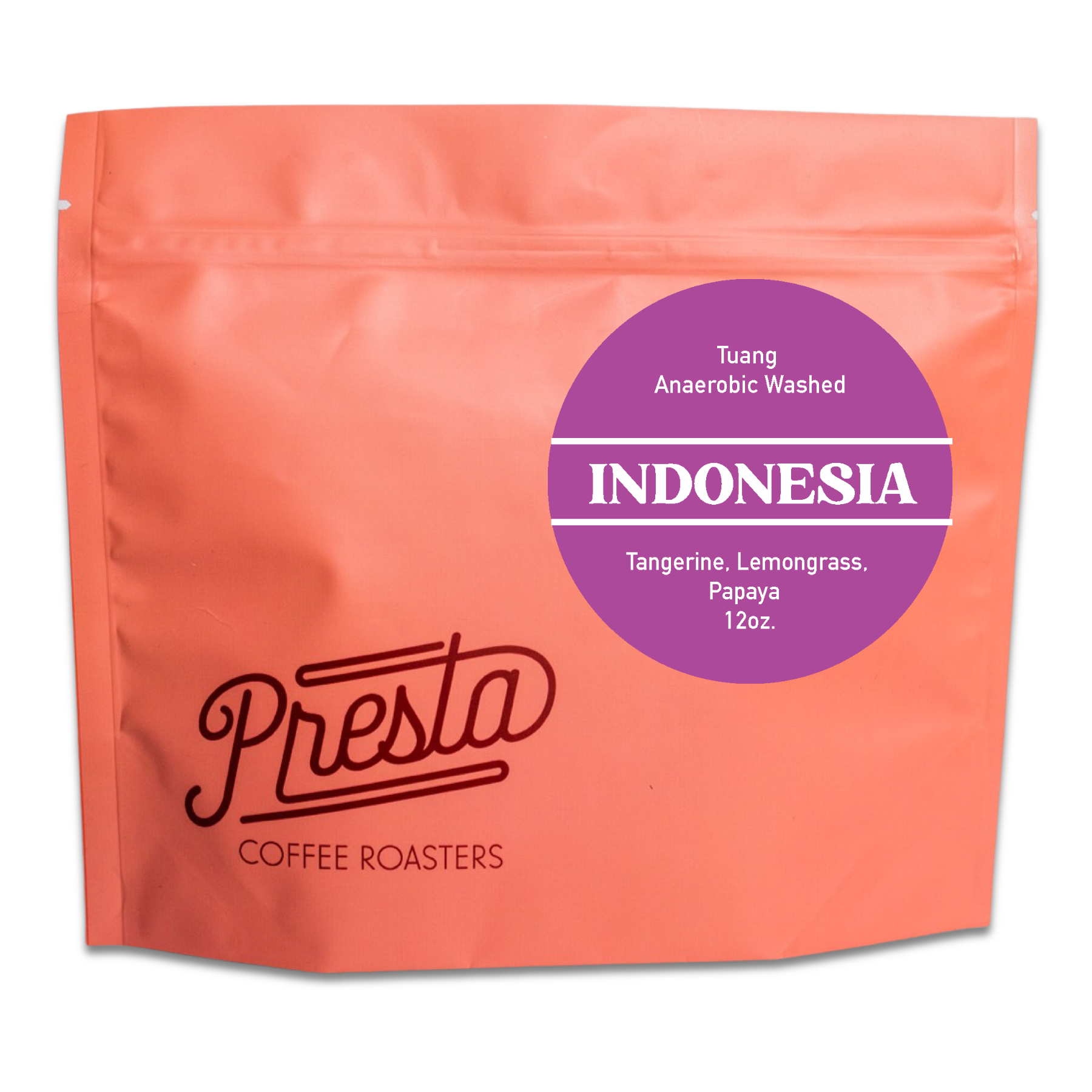
Indonesia - Tuang - Anaerobic Washed
Origin: Indonesia
Region: Manggarai, East Manggarai
Farmer: Smallholder Farmers
Elevation: 1400 - 1700 MASL
Processing Facility: Tuang Mill
Varietal: Kartika, Yellow Bourbon, Juria
Processing Method: Anaerobic Washed
Tasting Notes: Tangerine, Lemongrass, Papaya
Ruteng is home to Tuang Coffee, a forerunner of specialty coffee production and ethical sourcing on Flores (an island in Indonesia). Tuang was founded by Andre Hamboer, who grew up there surrounded by his father’s extended family in Indonesia’s capital of Jakarta. After deciding that the life of a corporate lawyer in Singapore wasn’t for him, Andre established Tuang in 2014 with a vision to elevate Manggarai coffee in ways that deliver higher incomes for coffee farmers.
Tuang’s coffee comes from more than 1000 smallholder farms at elevations of 1400-1700m in thirteen villages in the districts of Manggarai and East Manggarai. They’ve worked closely with their village-based collectors to develop a steady supply of meticulously picked and sorted red coffee cherry, which they then process in Ruteng. They work with their collectors to set the price to be received by farmers and then pay the collectors a separate fee which is a departure from the standard practice of paying collectors a set rate and lacking knowledge of the price farmers receive.
The dominant variety in the region is Kartika, a portmanteau of Kopi Arabika Tipe Katai, which is a localized version of Catuai. Other varieties are present in smaller volumes throughout the area, including Yellow Bourbon and Juria, an old typica variety that was planted in an earlier era of coffee production in Flores, with a few hearty trees remaining. Alongside the coffee trees you can also find Banana, Taro, and Yum Yum trees helping to maintain a balanced ecosystem and soil nutrients on the farms.
Tuang’s anaerobic washed coffee starts with selective picking of ripe red cherry by the smallholder farmers, which they deliver to a collection point where additional sorting is performed. The collector transports the cherries to Tuang’s mill, in Ruteng, where ripeness is checked, and the cherries are loaded into water tanks that have been repurposed for fermentation. The tank is sealed and the coffee is left to ferment (anaerobic) for up to 10 days. As the fruit breaks down a liquid is produced, When the liquid reaches a pH of 3.8 the coffee is removed from the tanks and fully washed before being spread on raised beds for drying down to 11 percent moisture content over the course of 2-4 weeks, before being moved to the warehouse for storage. Lots are maintained separately- by village and date received, instead of varietal- throughout the process to maintain the highest levels of quality control. The result is a tropically sweet and bright cup.
